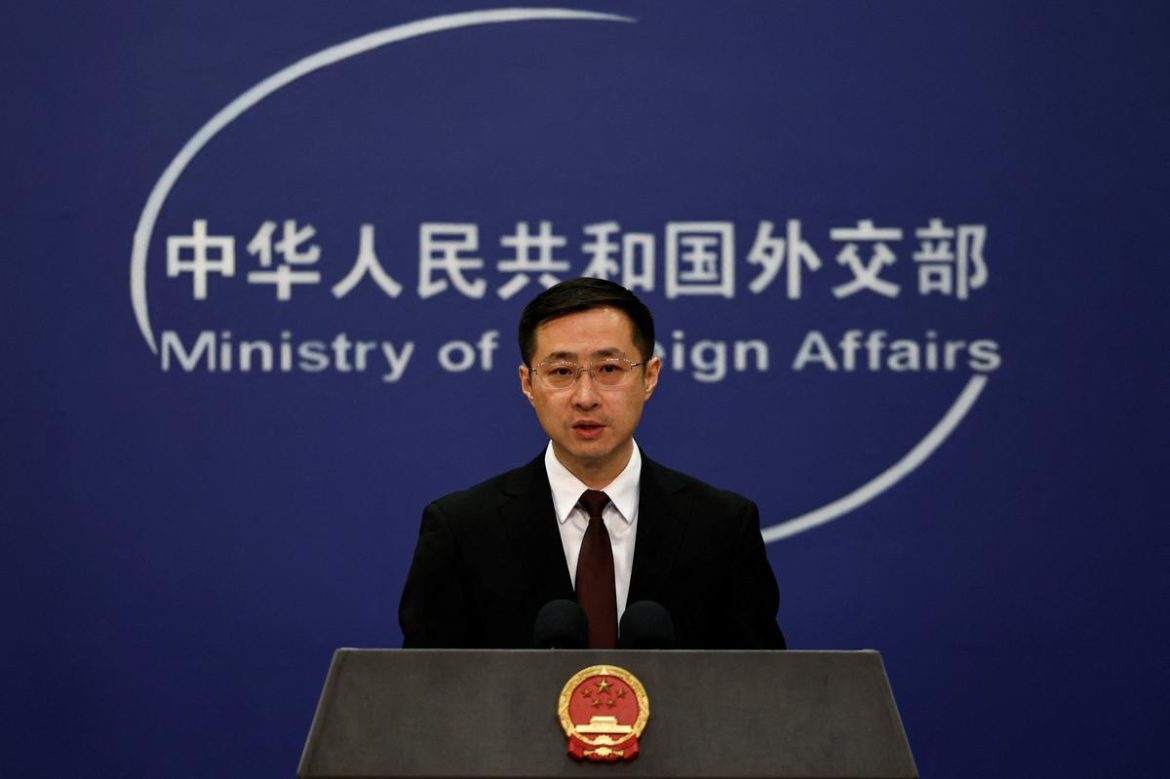China Slams Trump Over Israel-Iran Remarks
China has sharply criticized former U.S. President Donald Trump for what it described as dangerously inflammatory comments regarding the escalating conflict between Israel and Iran. Chinese officials warned that Trump’s rhetoric risks widening regional instability just as tensions appear to be approaching a breaking point.
Trump’s Warning Sparks International Concerns
On Monday, Trump posted on his social media platform Truth Social, urging swift evacuation of the Iranian capital. “Everyone should immediately evacuate Tehran!” he wrote, without providing further context or indications of imminent military actions. His comments followed earlier calls for Iranian leadership to engage in peace negotiations with Israel. These public statements have drawn swift condemnation from Beijing.
China’s Diplomatic Rebuke: Fanning the Flames
During a regular press briefing in Beijing, Chinese foreign ministry spokesman Guo Jiakun accused Trump of stoking conflict rather than promoting dialogue. “Fanning the flames, pouring oil, making threats and mounting pressure will not help to promote the de-escalation of the situation, but will only intensify and widen the conflict,” said Guo. The official highlighted that such statements risk exacerbating hostilities, particularly at a time when diplomacy is desperately needed.
What Happened Between Israel and Iran
The renewed tensions between Israel and Iran have triggered widespread concern within the international community. Though the specific causes of the current escalation were not detailed in the Chinese statement, ongoing hostilities, strategic rivalries, and proxy conflicts across the Middle East have marked the two nations’ turbulent relationship.
China has long maintained a policy of non-intervention in regional conflicts, but its foreign ministry is now taking a more active stance aimed at de-escalation. This includes appeals to nations close to Israel, particularly the United States, which Beijing believes holds unique leverage over Israeli actions.
China Calls for U.S. Responsibility
China explicitly called upon Washington to use its influence to prevent further deterioration of the situation. “The Chinese side calls on all relevant parties, especially countries with special influence on Israel, to shoulder their responsibilities, take immediate measures to de-escalate tensions, and prevent the conflict from expanding and spreading,” Guo said.
Beijing’s comments suggest it sees a gap between the United States’ desire to maintain regional alliances and its ability—or willingness—to prevent reckless escalations. Utilizing carefully crafted language, Chinese officials are steering blame toward what they see as provocations and lack of restraint on the part of Western leaders, especially Trump.
Beijing’s Broader Strategic Interests in the Middle East
China’s growing influence in the Middle East, through economic investments and political partnerships, is an emerging part of its foreign policy vision. Beijing is increasingly vocal about regional peace not only for humanitarian reasons but also to protect its expanding trade and energy interests. Guo emphasized that “China will continue to maintain communication with relevant parties and promote talks for peace, so as to prevent more turmoil in the region.”
Middle East Risks Wider Destabilization
The stakes of continued conflict between Israel and Iran go far beyond bilateral animosity. As Guo warned earlier this week, “If the conflict between Israel and Iran continues to escalate or even spill over, the other countries in the Middle East will inevitably bear the brunt.”
Experts note that an escalation could draw in other regional players such as Saudi Arabia, Hezbollah in Lebanon, and even non-state actors across Syria and Iraq—setting off a domino effect in a fragile geopolitical landscape.
Global Reactions and Diplomatic Path Forward
Western allies have yet to formally respond to China’s comments. However, diplomatic observers indicate that such rhetoric from Beijing may be an attempt to position itself as a responsible global actor amid shifting alliances, especially as the United States navigates its own domestic political climate.
Meanwhile, Middle Eastern markets and governments remain on edge. The possibility of military confrontation threatens oil supply routes, amplifies refugee concerns, and brings into question the effectiveness of foreign diplomatic interventions.
Moving forward, analysts argue that peace initiatives from neutral global powers—such as China or European Union nations—may offer the only realistic path to diffusing current tensions. As Beijing continues to promote dialogue over confrontation, the global community watches closely to see whether words will translate into action.

